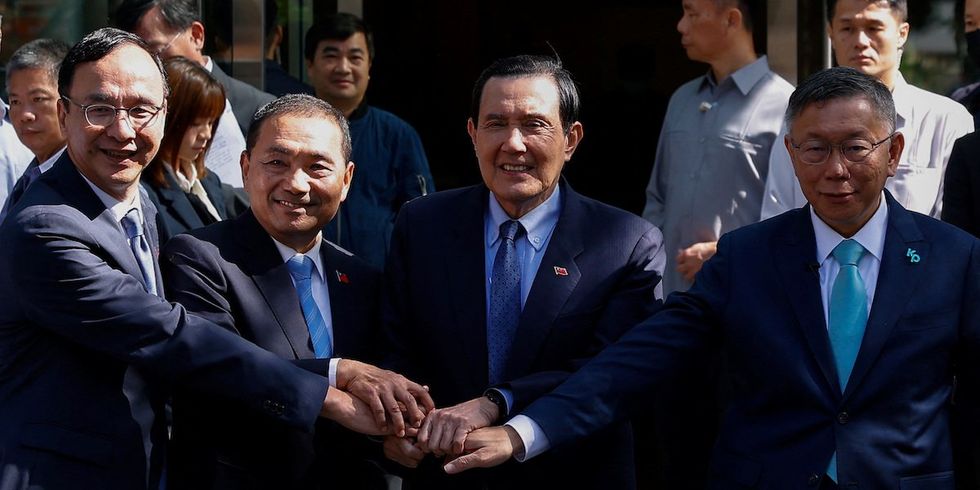On the sidelines at Wednesday’s APEC meeting in San Francisco, Presidents Joe Biden and Xi Jinping received news that might make US-Chinese relations a little less tense, as Taiwan’s upcoming presidential election campaign just got a lot more interesting.
For months, the current vice president, William Lai of the Democratic Progressive Party, has been favored to win on Jan. 13, in part because his two main challengers, Hou Yu-ih of the Kuomintang Party and Ko Wen-je of the Taiwan People’s Party, were expected to split the anti-Lai vote. But on Wednesday, the two opposition parties announced they would form a unity coalition behind a single candidate to defeat Lai and the DPP.
This news sharply increases the odds of an opposition victory, an outcome that would be welcomed as good news in Beijing. China’s government considers Lai a champion of Taiwan’s independence movement, while the opposition favors talks and closer ties with the mainland. For the same reason, an opposition win, still far from a sure thing, would also ease China-US tensions, which have run high as China applies heightened military pressure on the island. Most experts consider a war over Taiwan unlikely over the next year, but near-miss encounters involving US and Chinese naval vessels and aircraft in the Taiwan Straits have raised serious concerns in recent months.
It remains unclear for the moment whether the unity opposition candidate will be Hou or Ko. That will depend on polling over the next few days, and experts say it’ll be a close race. But for now, both candidates appear set to move forward on a joint ticket.
Meanwhile, Lai, who’s polling at 35.2%, remains confident he can still win.



















